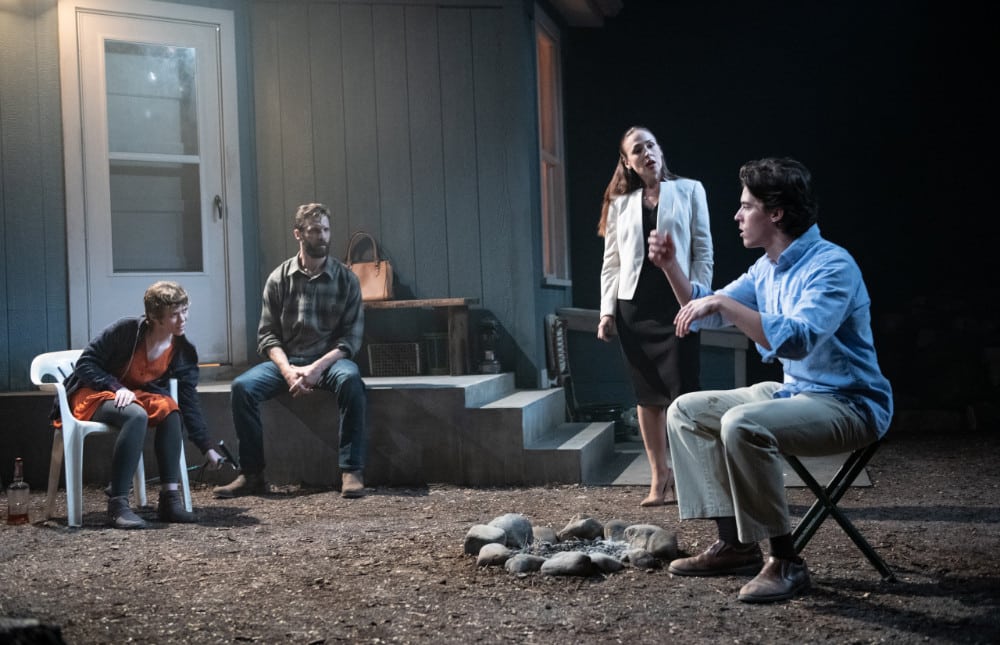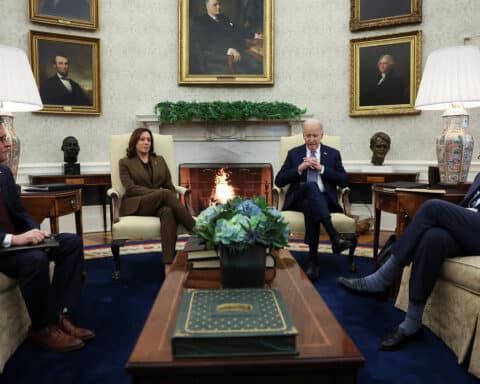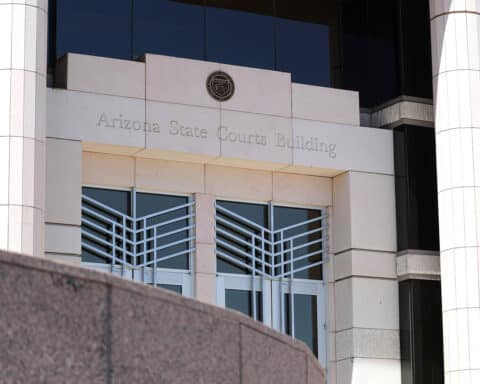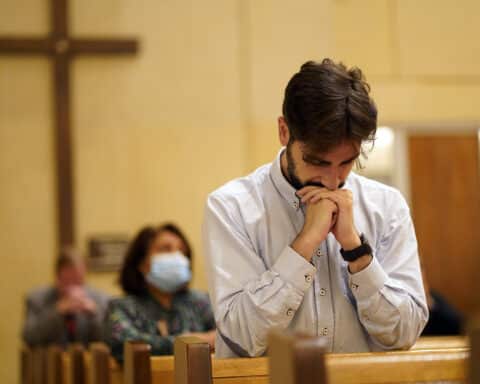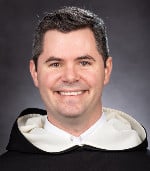
Set in western Wyoming one week after the 2017 Charlottesville riot, four alumni of a small Catholic liberal arts college converse around a campfire. They have a “big conversation” covering topics ranging from Heidegger, Flannery O’Connor, the soul and Steve Bannon. Later, the group is joined by a former professor who has just been named the new president of their own (beloved?) Transfiguration College.
But the play isn’t really about ideas. It’s not about the principles the characters are debating. “My mother says it’s a play about fissures — the spaces between people — and I think that’s right,” Arbery said. After seeing the play, I was so struck by the distances I had to call a friend to fill them out. And together, we reveled in the people we grew up with that we saw on Arbery’s stage. Unspoken went the spaces inbetween. But they were shared and known.
Perhaps that’s why so many Catholics and Christian thinkers lauded the play when it first debuted. Back then, Chad Pecknold, a theology professor at The Catholic University of America, wrote in the Catholic Herald, “Arbery’s play is remarkable for never letting progressives rest in their dismissals of conservatives, and also for holding up a critical mirror to the often messy disputes that conservatives have amongst themselves.” Opposite Pecknold, Jesse Green wrote in The New York Times, “The astonishing new play explores the lives and ideas of conservatives with affection, understanding and deep knowledge — if not, ultimately, approval.”
None of Arbery’s millennial characters are villains … but none are heroic either. Kevin works for a Catholic textbook company and attends daily Mass several times a week but struggles with loneliness and pornography and cowardice. I wished Kevin would bite the bullet and enter seminary, despite his fear. His foil is Justin, a veteran whose life was saved by Transfiguration, who is the strong, silent type. At one point in the conversation, he argues: “They’re wishing for our death. And the only way to survive is to block them out, to focus on the Lord and try to survive.” I mourn his pessimism and defeatism.
Teresa is an Ayn Rand-style pugilist. “Liberals are empathy addicts,” she declares. Her call to fight for what we believe in is admirable, and yet she is militant, obstinate and draconian. And of the group, she’s the one who engages “the other side.” Finally, there’s Emily, whose chronic pain amplifies her appeals for understanding. She interrupts the steady stream of ideas with relationships. At one moment, she insists, “Everything is going to be OK, and I love you all / I love you, / I love you, / I love you, / I really do.”
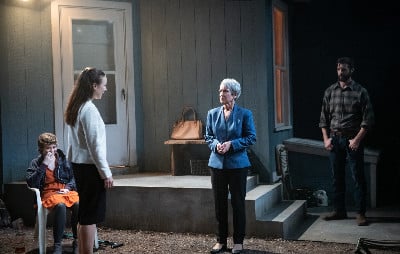
So heroes, in one sense, the backyard philosophers are not. The four alumni have a hero, though, their own professor-turned-president. When Dr. Gina appeared on stage, I gasped. She may as well have taken a taxi over from Catholic University. Confident and poised, after some cajoling, she reads an excerpt from her inauguration speech. And then the audience learns that Gina is just as conflicted as her students.
The former students struggle to assess whether or not they still view Dr. Gina as a hero. And their struggle seems, to me, to be part of our larger cultural sickness. One political commentator recently declared: “We are in the postheroic era of American politics. What voters want is someone who sees the major issues as they do.” It’s a sickness, because we may well have abandoned desiring heroism among our politicians, but we still want — no, need — heroes.
Arbery’s millennials may not be heroes themselves, but they long for heroism. They are concerned to know evil, even if they haven’t pinned it down exactly, and fight it. They want to pursue the good. And Arbery’s chosen question of heroism is all the more haunting, because not once does one of them mention mercy or justice.
More than a coming-of-age story, Arbery has captured how Americans have changed. We no longer desire heroes in the way we once did. Jaded, betrayed, deceived … we are reluctant to anoint saints and sovereigns alike. And still, we can’t help asking: What is heroism? Will we be heroes?
Father Patrick Briscoe, OP, is editor of Our Sunday Visitor. Follow him on Twitter @PatrickMaryOP.

